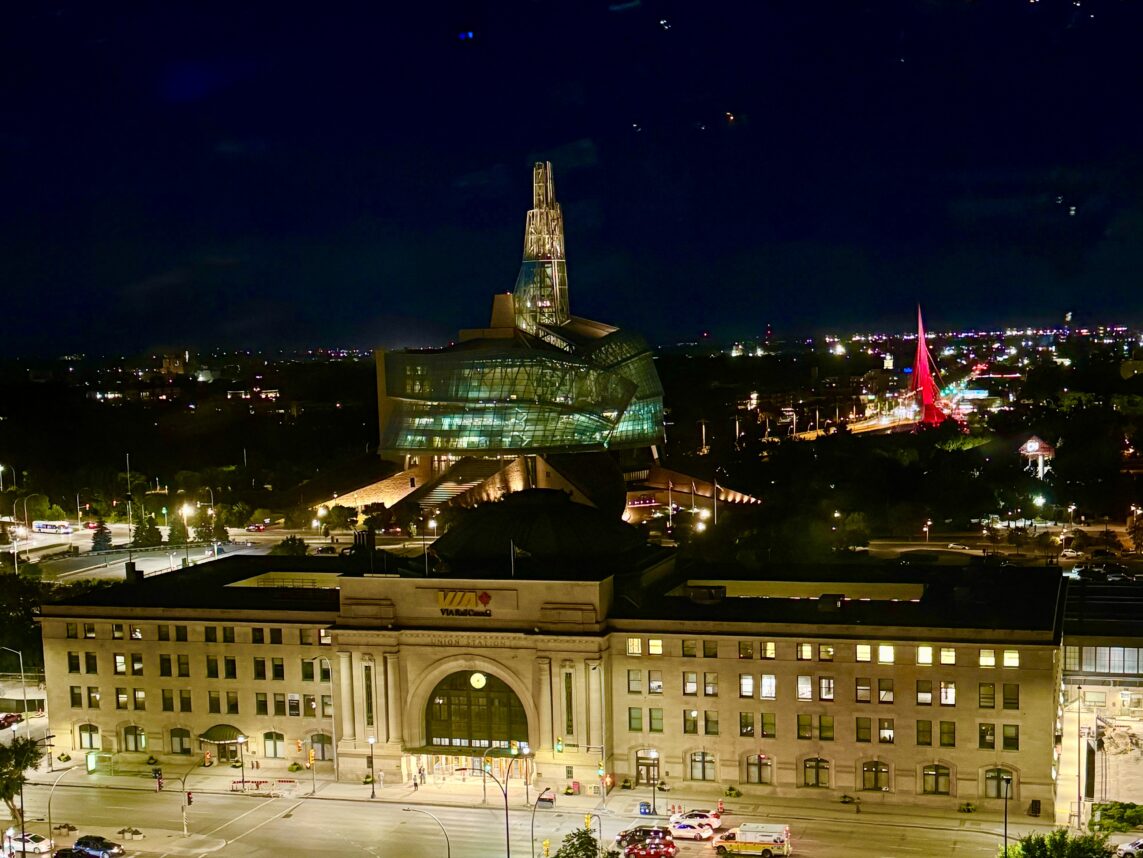|
READ A PREVIOUS WEEK’S TORAH PORTION Parashat Pinchas (Numbers 25:10-30:1)
Parashat Balak (Numbers 22:2-25:9)
Parashat Chuka (Numbers 19:1-22:1)
Parashat Korach (Numbers 16-18)
Parashat Shelach (Numbers 13:1-15:41)
Parashat Behaalotecha (Numbers 8:1-12:16)
Parashat Naso (Numbers 4:21-7:89)
Parashat Bamidbar (Numbers 1:1-4:20)
Parashat Behar-Behukotai (Leviticus 25:1-27:34)
Parashat Emor (Leviticus 21-24)
Acahre-Kedoshim (Leviticus 16:1-20:27)
Parashat Tazria-Mezorah (Leviticus 12:1 – 13:59)
|
Love in a Paper BagBy Rabbi Steven LederThe Mystics believe that every letter of Torah — even the white space between the letters — is drenched with meaning. At first glance, this week’s Torah portion seems to prove them wrong. It begins with a detailed list of every place the Israelites stopped during their 40 years of wandering in the desert. “The Israelites set out from Ramses and encamped at Succoth. They set out from Succoth and encamped at Etham. They set out from Etham and turned about toward Pi-Hahirot, which faces Gaal-Sephon, and they encamped before Migdol….” You get the idea. Where’s the meaning in a Torah portion that’s a little like having to watch a video of someone else’s family vacation? The answer is in this beautiful story about author Robert Fulghum and his 7-year-old daughter, Molly: It was Molly’s job to hand her father his brown paper lunch bag each morning before he headed off to work. One morning, in addition to his usual lunch bag, Molly handed him a second paper bag. This one was worn and held together with duct tape, staples and paper clips. “Why two bags?” Fulghum asked. “The other one is something else,” Molly answered. “What’s in it?” “Just some stuff. Take it with you.” Not wanting to hold court over the matter, Fulghum stuffed both sacks into his briefcase, kissed Molly and rushed off. At midday, while hurriedly scarfing down his real lunch, he tore open Molly’s bag and shook out the contents: two hair ribbons, three small stones, a plastic dinosaur, a pencil stub, a tiny sea shell, two animal crackers, a marble, a used lipstick, a small doll, two chocolate kisses and 13 pennies. Fulghum smiled, finished eating and swept the desk clean — into the wastebasket — leftover lunch, Molly’s junk and all. That evening, Molly ran up behind him as he read the paper. “Where’s my bag?” “What bag?” “You know, the one I gave you this morning.” “I left it at the office. Why?” “I forgot to put this note in it,” she said. “And, besides, those are my things in the sack, Daddy, the ones I really like — I thought you might like to play with them, but now I want them back. You didn’t lose the bag, did you, Daddy?” “Oh, no,” he said, lying. “I just forgot to bring it home. I’ll bring it tomorrow.” While Molly hugged her father’s neck, he unfolded the note that had not made it into the sack: “I love you, Daddy.” Molly had given him her treasures. All that a 7-year-old held dear. Love in a paper sack, and he missed it — not only missed it, but had thrown it in the wastebasket. So back he went to the office. Just ahead of the night janitor, he picked up the wastebasket and poured the contents on his desk. After washing the mustard off the dinosaurs and spraying the whole thing with breath-freshener to kill the smell of onions, he carefully smoothed out the wadded ball of brown paper, put the treasures inside and carried it home gingerly, like an injured kitten. The bag didn’t look so good, but the stuff was all there and that’s what counted. After dinner, he asked Molly to tell him about the stuff in the sack. It took a long time to tell. Everything had a story or a memory or was attached to dreams and imaginary friends. Fairies had brought some of the things. He had given her the chocolate kisses, and she had kept them for when she needed them. “Sometimes I think of all the times in this sweet life,” Fulghum concludes the story, “when I must have missed the affection I was being given. A friend calls this ‘standing knee deep in the river and dying of thirst.'” We’re all a little like Fulghum sometimes, and my guess is that our ancestors in this week’s Torah portion were too. We all miss a lot as we wander and travel through our lives. We all travel pretty fast, but often without much sense of direction. Maybe the Torah was trying to teach us a better way to live, by recounting each step of our people’s ancient pilgrimage; reminding us that it’s not the destination that counts in life — it’s the journey. The little girl smiles, Such a simple truth so easily forgotten. Steven Z. Leder is a rabbi at Wilshire Boulevard Temple.
|






















 More news and opinions than at a Shabbat dinner, right in your inbox.
More news and opinions than at a Shabbat dinner, right in your inbox.